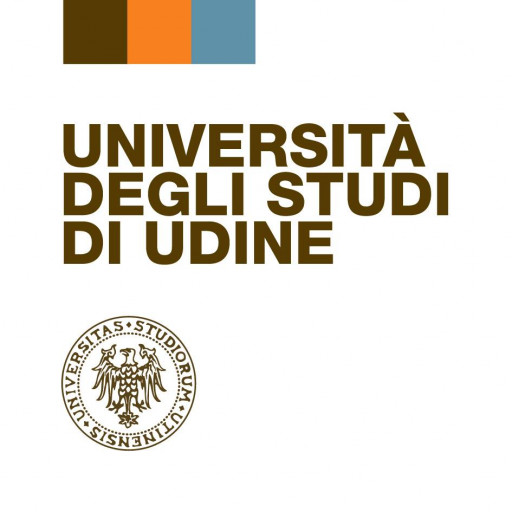The Rutgers University-Camden Biomedical Sciences: Infection, Immunity and Inflammation program is designed to provide students with a comprehensive understanding of the complex biological processes underlying infectious diseases, immune system functions, and inflammatory responses. This interdisciplinary program combines foundational coursework in biology, chemistry, and microbiology with advanced studies in immunology, pathogenesis, and biomedical research methods. Students will engage in rigorous laboratory training, gaining hands-on experience with cutting-edge techniques used in biomedical research, including molecular biology, cell culture, and immunoassays. The program aims to prepare graduates for careers in biomedical research, healthcare, pharmaceuticals, and related fields, with a focus on understanding disease mechanisms and developing innovative therapeutic strategies. Throughout the curriculum, students will have opportunities to participate in research projects, internships, and collaborations with faculty renowned for their expertise in infectious diseases, immune responses, and inflammation. The program emphasizes critical thinking, scientific discovery, and practical skills to address pressing health challenges such as infectious outbreaks, chronic inflammatory conditions, and immune system disorders. Graduates will be equipped to contribute to scientific advancements, pursue further graduate or professional education, or seek employment in biomedical research institutions, healthcare industries, or governmental agencies dedicated to improving public health. The Rutgers-Camden Biomedical Sciences program fosters an engaging academic environment where students develop both theoretical knowledge and practical competencies, preparing them to make meaningful contributions to the fields of infection, immunity, and inflammation.
The Biomedical Sciences: Infection, Immunity and Inflammation program at Rutgers University-Camden offers a comprehensive and rigorous curriculum designed to prepare students for careers in biomedical research, healthcare, and related fields. This innovative program provides students with a deep understanding of the biological mechanisms underlying infectious diseases, immune system function, and inflammatory processes. Through a combination of foundational coursework, laboratory experiences, and research opportunities, students develop critical thinking skills and practical expertise essential for advancing in biomedical sciences.
The curriculum covers key topics including microbiology, immunology, cell biology, molecular biology, and pathology, providing a broad knowledge base in human health and disease. Students learn about the immune response to pathogens, mechanisms of infection, and the body's inflammatory reactions, gaining insights into how these processes contribute to disease development and health maintenance. Emphasis is placed on understanding the latest scientific advances and techniques used in research laboratories, such as DNA analysis, flow cytometry, and microscopy.
In addition to coursework, students engage in hands-on laboratory experiments that reinforce theoretical knowledge and develop technical skills. Research projects are an integral part of the program, allowing students to work closely with faculty mentors on current biomedical investigations. This experiential learning prepares students for graduate studies, health professions, or careers in biomedical research institutions and industry.
The program also focuses on developing skills in scientific communication, critical analysis of research literature, and ethical considerations in biomedical research. Students are encouraged to participate in internships, conferences, and community outreach activities to enhance their professional development. Upon graduation, students are equipped with the scientific literacy and practical experience necessary to contribute to advancements in understanding and treating infectious, immune-related, and inflammatory diseases, making a positive impact on public health.
Designed for students interested in the molecular and cellular aspects of health and disease, the Biomedical Sciences program fosters a dynamic learning environment that promotes inquiry, innovation, and collaboration. By integrating coursework, research, and experiential learning, Rutgers-Camden prepares the next generation of biomedical scientists to address some of the most pressing health challenges of our time.
Course Requirements for the Bachelor of Science in Biomedical Sciences: Infection, Immunity and Inflammation at Rutgers University-Camden typically include a combination of core science courses, specialized electives, and general education requirements. Students must complete foundational courses such as General Biology with laboratory components, General Chemistry, Organic Chemistry, and Physics to establish a solid understanding of fundamental scientific principles. A significant portion of the curriculum is dedicated to advanced courses focusing on microbiology, immunology, pathology, and cellular biology that explore the mechanisms of infectious agents, immune responses, and inflammatory processes.
Students are encouraged to engage in research projects or internships to gain practical experience in biomedical laboratories or healthcare settings. The program often requires students to take classes in biostatistics and healthcare ethics to prepare them for professional environments. To fulfill graduation requirements, students must also complete general education courses in humanities, social sciences, and mathematics, ensuring a well-rounded academic profile.
Elective options might include specialized courses such as immunotherapy, infectious disease epidemiology, or advanced molecular biology. Many programs emphasize the importance of coursework in writing and communication skills through required seminars or capstone projects, which synthesize learning and demonstrate mastery of topics. Additionally, students are often advised to participate in extracurricular activities like research seminars, student organizations related to biomedical sciences, or community health outreach programs.
In summary, the program prerequisites are designed to ensure students develop comprehensive knowledge across biology, chemistry, and related disciplines, alongside practical skills necessary for graduate studies or careers in medicine, research, or healthcare. The program aims to prepare students for competitive further study or employment by integrating scientific theory with applied learning experiences, fostering both scholarly excellence and professional readiness.
The Biomedical Sciences: Infection, Immunity and Inflammation program at Rutgers University-Camden offers various financing options to accommodate a diverse student body. Students can access a range of scholarship opportunities based on academic achievement, specific eligibility criteria, or financial need, which can significantly offset tuition costs. Rutgers University-Camden provides merit-based scholarships, which are competitive and typically awarded based on academic performance and extracurricular involvement. Additionally, need-based grants and financial aid packages are available to qualifying students to make education more accessible. Students are encouraged to complete the Free Application for Federal Student Aid (FAFSA) to determine their eligibility for federal grants, loans, and work-study programs. The university also offers departmental scholarships specific to the biomedical sciences fields, supporting students who demonstrate exceptional talent and dedication to their studies.
Moreover, students can explore external scholarship programs offered by healthcare organizations, research foundations, and community groups, which often support students pursuing degrees in health sciences and related disciplines. Work-study programs allow students to gain practical experience while earning financial support, which can be beneficial for managing educational expenses. Rutgers University-Camden also provides payment plans that enable students to spread out tuition payments over a longer period, alleviating financial strain.
Graduate students in the program may have access to assistantship positions, including research or teaching assistantships, which offer tuition remission and stipends in exchange for academic or research duties. Another important aspect of financing is student loans, which are available through federal and private sources to help cover the remaining costs beyond scholarships and grants. The university's financial aid office provides comprehensive guidance to students to navigate available funding options, complete necessary applications, and optimize their financial resources. Overall, Rutgers University-Camden aims to support its students financially through a robust combination of scholarships, aid programs, employment opportunities, and flexible payment options, ensuring that students can focus on their advanced studies in biomedical sciences without undue financial hardship.
The Bachelor of Science in Biomedical Sciences: Infection, Immunity, and Inflammation at Rutgers University-Camden offers students an in-depth understanding of the biological mechanisms underlying infectious diseases, immune responses, and inflammatory processes. This program is designed for students interested in pursuing careers in healthcare, biomedical research, or graduate studies in biomedical sciences. The curriculum combines foundational courses in biology, chemistry, and physics with specialized classes focusing on microbiology, immunology, pathology, and molecular biology. Students gain practical laboratory experience to develop their skills in experimental techniques, data analysis, and research methodology. The program emphasizes interdisciplinary learning, integrating concepts from medicine, molecular biology, and public health to prepare students for the complexities of biomedical research and healthcare challenges. Throughout the program, students have opportunities to participate in research projects, internships, and collaborations with faculty on current scientific inquiries. The program also covers topics related to infectious disease mechanisms, immune system functioning, the development of vaccines, and inflammatory disorders, providing a comprehensive understanding of these critical areas. Rutgers-Camden’s location offers unique access to research centers and healthcare institutions, fostering practical experiences. Graduates are equipped to pursue advanced degrees such as medical, dental, or graduate school, or to engage in biomedical research careers. The program’s faculty are experienced experts dedicated to mentoring students and advancing biomedical knowledge. The curriculum is regularly updated to reflect the latest advances in biomedical sciences, ensuring that graduates are prepared for evolving scientific and healthcare fields. In addition to rigorous coursework, students are encouraged to develop critical thinking, problem-solving, and scientific communication skills. The university also supports student organizations and seminars related to biomedical sciences, enhancing learning and professional development in infection, immunity, and inflammation research topics.










